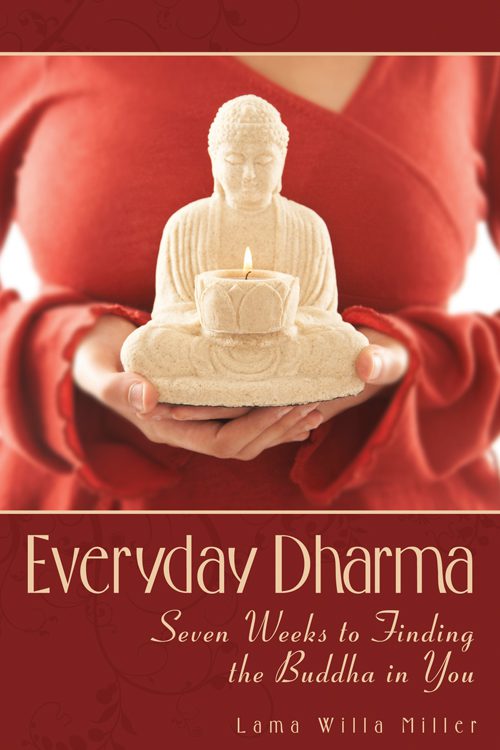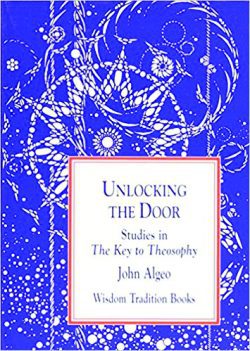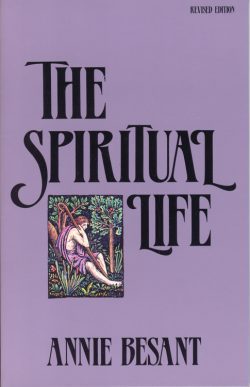Everyday Dharma
Seven Weeks to Finding the Buddha in You
Book Details
| Pages |
268 Pages |
| Size |
6 x 9 |
| Format |
Trade Paperback |
| Pub. Date |
10/01/2009 |
| ISBN |
978-0-8356-0883-1 |
| Publisher |
Quest Books
|
Authors
Lama Palmo [transitioning to Lama Willa Miller, her American name] has studied and practiced in the Tibetan Buddhist tradition for the last twenty years, and is an authorized lama in the Tibetan Buddhist tradition. Her teachers include the late Venerable Kalu Rinpoche, Venerable Dilgo Khentse Rinpoche, Lama Norlha Rinpoche, Khenpo Tsultrim Gyatso Rinpoche, Bokar Rinpoche, and other teachers from all schools of Tibetan Buddhism. She completed two three-year retreats at Kagyu Thubten Choling Monastery in Wappingers Falls, NY, serving as assistant teacher, retreat master (drupon), and translator for her second retreat. Before and after her retreats, she spent time in Nepal, Tibet, and India, studying Buddhism and engaging in service work. She teaches Tibetan Buddhist practice and meditation in the Northeast. She has an M.A. in Buddhist Studies from the University of Virginia, and is working towards a PhD at Harvard University. She lives in Cambridge, MA with her husband and two dogs.
In The Everyday Dharma, Willa Miller, an authorized lama in the Tibetan Buddhist Tradition, reworks ancient Buddhist techniques and adapts them for western readers seeking personal transformation. Becoming a Buddha, Lama Miller explains, means observing the mind and actions and then doing the physical, psychological, and spiritual work to move closer to one’s wisdom nature. Dharma is spiritual practice; it’s what one does every day to make one’s mind and world a better place to live. Each chapter includes a passage to read, an exercise of the day that relates to each week’s topic, a quote from a sage, and tips on how to make daily practice a little easier. The book shows that it’s not necessary to subscribe to a particular — or any — belief system to benefit from this program. “It’s only necessary,” says Lama Miller, “to believe one deserves to live a more fulfilling and meaningful life.”
Show more Show less
"Drawing profusely on the richness, subtlety, and psychological astuteness of the Tibetan wisdom tradition, Lama Willa manages to make it all seem simple and actually doable in our day-to-day lives. She persuades us that we, even we, can be spiritual heroes -- that enlightened altruism is a joyous come-as-you-are party." --Dean Sluyter, author of Why the Chicken Crossed the Road and Other Hidden Enlightenment Teachings, The Zen Commandments, and Cinema Nirvana: Enlightenment Lessons from the Movies
"I consider Lama Willa to rank among the most highly trained and spiritually profound current Western teachers of Tibetan Buddhism. Having practiced for decades under the guidance of several of the leading Tibetan lamas of the twentieth century, she was formally installed as a lama, and requested by her own teachers to teach the ways of Buddhist enlightenment to the contemporary world. Lama Willa's way of teaching is fresh, accessible, welcoming, and profound. She speaks with clarity and simplicity to the widest possible audience--readers of any spiritual tradition or none. She masterfully connects ancient teachings of Buddhism to numerous facets of modern life and contemporary concern. Like revered and profound spiritual teachers of the past, in this remarkable book, Lama Willa masterfully opens a door for us into our own hearts, where she helps us glimpse, and then bring forth, the profound goodness that we always were. Whoever takes up the meditations and teachings of this book will never be the same." --Lama John Makransky, PhD, Professor of Buddhist Studies, Boston College, Buddhist teacher and author of Awakening Through Love, Buddhahood Embodied: Sources of Controversy in India and Tibet, and Buddhist Theology
"Here are words from a truly wise woman to help us live more fully, effectively and wisely, and to share our gifts with the world" --Roger Walsh, M.D., Ph.D., University of California Medical School, author of Paths Beyond Ego, Essential Spirituality: The Seven Central Practices, A Sociable God, and World of Shamanism





